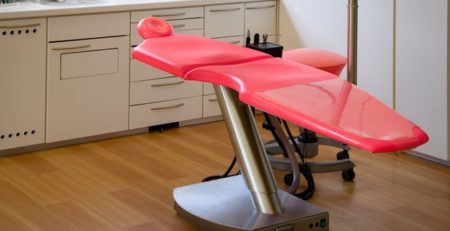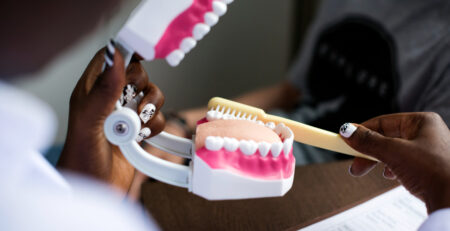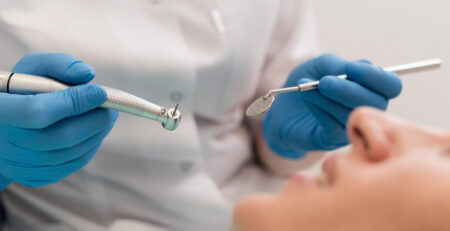Why Unexpected Tooth Pain Needs Urgent Care
Tooth pain doesn’t ask for permission—it shows up at the worst times and demands attention. What starts as a dull ache can quickly turn into sharp, throbbing pain that’s hard to ignore. While it’s tempting to wait it out, delaying treatment can turn a minor problem into something much more serious. Understanding what’s behind sudden tooth pain helps you act fast, protect your health, and save your smile.
Sudden Severe Toothache Often Signals Hidden Infection or Decay
A tooth that starts hurting out of nowhere can be a sign of something brewing beneath the surface. What feels like a random ache is often caused by deep decay or an infection near the tooth root. This kind of pain doesn’t usually go away on its own and may get worse over time. It can throb constantly, respond to hot or cold, or shoot pain when you chew. The discomfort is your body’s way of sounding the alarm—something’s wrong inside that tooth.
Hidden decay can spread quietly until it reaches the nerve, causing sharp pain and sometimes even swelling. Ignoring it risks more than pain—it can mean a larger procedure later, like a root canal or even extraction. That’s why it’s smart to get a dental exam as soon as tooth pain appears. A dentist can spot the problem early and prevent bigger issues from developing down the line.

Cracks or Chips That Expose Nerve Endings Demand Prompt Attention
It only takes one wrong bite—on an olive pit, ice cube, or crunchy snack—for a tooth to crack or chip. Sometimes it doesn’t look like much, but even a small fracture can expose the sensitive inner layers of the tooth. That sharp zing of pain when drinking something cold or biting down is often the first clue. These injuries leave nerve endings vulnerable, which means pain can escalate quickly.
Cracks that reach deep into the tooth can let bacteria inside, leading to infection or nerve damage. Waiting too long can allow the crack to worsen, which might make the tooth harder to save. That’s why it’s important to see a dentist right away if you notice a chipped or cracked tooth, even if it’s not causing severe pain yet. Urgent care can often restore the tooth and stop further damage before it becomes permanent.
Tooth Abscesses Risk Spreading Infection Without Fast Treatment
A tooth abscess forms when a pocket of pus builds up due to infection. It might start with swelling in the gums or sharp pain near a specific tooth, often accompanied by pressure or even a bad taste in your mouth. Left untreated, the infection can spread quickly—not just in the mouth, but through the jaw and even into the bloodstream. That’s when things move from dental to medical.
Abscesses are serious. They often require draining, antibiotics, and sometimes root canal therapy to remove the infection source. If you feel intense pain, notice swelling in your face, or develop a fever alongside a toothache, don’t wait. These are clear signs that the infection is advancing, and urgent care is needed to keep it from spreading further. Early treatment prevents complications and preserves the health of nearby teeth.
Exposed Roots from Gum Recession Can Cause Sharp, Acute Pain
Gums that pull back from the teeth—often from brushing too hard, aging, or gum disease—can reveal the tooth roots. Unlike enamel, roots have no protective coating and react strongly to temperature changes or pressure. This kind of pain feels sharp and sudden, especially with cold drinks, hot foods, or even a gust of air.
Once roots are exposed, they’re also more prone to decay and sensitivity. Leaving the problem untreated can lead to further recession and even tooth loss. Fortunately, treatments like bonding, desensitizing agents, or gum grafts can help. But timing matters—catching the issue early allows your dentist to offer simpler solutions that relieve pain and protect your teeth in the long run.
Impact Injuries like Knocked‑out or Dislodged Teeth Threaten Long‑Term Damage
Accidents happen fast. A fall, a hit during sports, or a bump to the mouth can knock a tooth out or push it out of position. It may be painful or just feel strange—but either way, it’s an emergency. Teeth that are knocked out have a short window of time for reimplantation, and the sooner you act, the better the chances of saving the tooth.
If the tooth is dislodged but still attached, there’s still a risk of nerve damage or loss of blood supply. A dentist can often stabilize the tooth and help it heal correctly—but this has to happen quickly. Keeping the tooth moist (in milk or saliva) and getting to a dental clinic within an hour gives the best shot at recovery. Waiting too long could mean permanent loss and the need for implants or bridges.

Persistent Pain, Swelling or Fever Is a Red Flag for Urgent Dental Care
Pain that doesn’t go away, even if it’s dull, should raise concern—especially if it’s joined by swelling or fever. These symptoms often point to infection or inflammation that’s spreading. What might feel manageable one day can become unbearable the next, as pressure builds or the infection moves to surrounding tissue.
Swelling in the jaw, face, or neck can block airways or affect eating and speaking. Fever signals your body is fighting off something serious. This combination is not just uncomfortable—it’s dangerous. Immediate dental care is needed to locate the source of the problem, relieve pressure, and stop the infection. Fast treatment avoids more complex health issues and gets you back to feeling normal again.
Loose or Missing Crowns and Fillings Expose Teeth to Infection Risks
Crowns and fillings protect teeth that have already been damaged. If one falls out or comes loose, the tooth underneath is suddenly vulnerable again. The exposed area can quickly become sensitive to temperature or pressure, and bacteria can slip into the gaps, leading to decay or even nerve infection. What might seem like a minor annoyance can become a serious issue without fast action.
Reattaching or replacing the crown or filling right away helps avoid bigger procedures down the road. A dentist can reseal the tooth, prevent further decay, and relieve any pain caused by exposure. Even if there’s no pain yet, waiting too long risks turning a quick fix into a root canal. Getting in promptly keeps your teeth strong and saves time, money, and discomfort.
Fast Tooth Pain Relief Starts with Expert Dental Help from Lumina Dental—Don’t Wait for It to Get Worse
Tooth pain rarely fixes itself. Delaying treatment can turn small problems into emergencies, and discomfort into long-term damage. Lumina Dental understands that urgent pain needs immediate, compassionate care. Our experienced team is ready to treat everything from cracked teeth to infections with a focus on fast relief and lasting solutions. Whether it’s late-night discomfort or a sudden ache during the workday, they know how to handle the situation with precision and care.
At Lumina Dental, patients receive more than just a quick checkup. Every visit includes a detailed diagnosis and clear treatment options tailored to what you need right now. No guessing, no drawn-out appointments—just the care you need, when you need it. We’ve helped countless patients in pain find quick, dependable solutions, and we’re ready to help you too. Contact us now to schedule your urgent dental visit and let Lumina Dental stop the pain before it gets worse.











